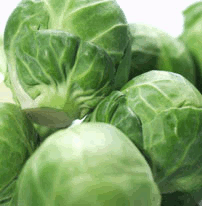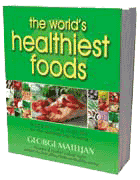What are some alternatives to salt?
Most Americans, especially those eating the Standard American Diet, love salt! We consume significant amounts of salt packaged and processed foods, and have grown so accustomed to the salty flavor of foods that we add it to most of our foods (even fruits and vegetables!) at the dinner table. For some people, excessive consumption of salt has very few health consequences. For others, however, excessive consumption of dietary sodium (from table salt and packaged foods), coupled with a low dietary intake of potassium, is a common cause of high blood pressure (known as the "silent killer"), especially in "salt-sensitive" individuals.
Of course, sodium is an essential mineral, necessary for maintaining proper water and electrolyte balance in the body, and we, therefore, need to consume some sodium every day. There is enough naturally occurring sodium in vegetables, that most people can get a sufficient amount of sodium without adding any extra salt to their food. But, unfortunately, only 5% of the sodium intake consumed by people living in the United States comes from the natural ingredients in food. Prepared foods contribute 45 percent of our sodium intake, 45 percent is added in cooking, and another 5 percent is obtained through condiments (e.g. ketchup, mustard, relish, salad dressings).
As you begin (or continue!) your journey to discovering the wonders of the World's Healthiest Foods, you will naturally decrease the amount of salt you consume. This is because you will begin to use, in place of table salt and other seasonings that contain sodium or monosodium glutamate, a variety of herbs that will add tremendous flavor, freshness, and zest to your food, while allowing you, at the same time, to experience the full flavor of the food itself. Increasing the amount of herbs you use in cooking provides a double benefit. Not only will you decrease your sodium intake, but the scientific community continues to uncover the powerful health benefits of herbs. Recent studies by researchers at the U.S. Department of Agriculture reveal that common herbs are loaded with antioxidants. Antioxidants are critical for good health. They include a wide variety of plant-derived compounds that prevent cellular damage caused by an excess of free radicals, corrosive molecules produced during normal metabolic processes and also generated by many external sources including pesticides, smoking and exhaust fumes. Free radicals have been implicated as major contributing factors in the development of virtually all chronic and aging-related diseases. Not only was the antioxidant activity of some herbs studied higher than that reported for vitamin E, these herbs even surpassed foods well-known for their antioxidant content such as vegetables, berries and other fruits. Oregano emerged the clear winner. In addition to oregano, a number of other herbs also pack a significant antioxidant punch. Among the more familiar, ranked in order, are dill, garden thyme, rosemary and peppermint. Less familiar herbs with comparable antioxidant-power include rose geranium, sweet bay, purple amaranth, winter savory and Vietnamese coriander.
Sea vegetables, also among the World's Healthiest Foods, can provide a salty flavor, without the adding sodium. Sea vegetables are rich sources of a vast array of minerals, and also contain lignans, plant compounds with cancer-protective properties. Kelp is commonly used as an alternative to salt, as it is available in flakes that can added easily to most foods during cooking or at the table.
So, take a step toward better health by cutting back on your salt intake, and take advantage of the flavor and health benefits of herbs and sea vegetables.






